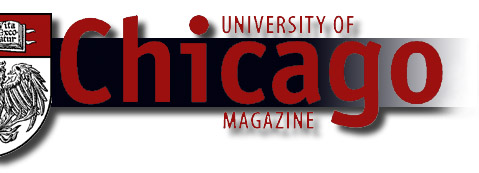 |

Hold
the eggplant?
And the potatoes?
And the tomatoes? The foods you eat a day or two before surgery
may change the way your body reacts to anesthesia. Physicians have
long wondered why some patients who have many factors in common
can have such different responses to the same anesthetic or muscle
relaxant. Now, Jonathan Moss and his U of C medical colleagues have
demonstrated in a recent study a connection between certain foods
and the metabolism of anesthetics.
The results,
says Moss, professor of anesthesia and critical care and the study’s
director, “bring us one step closer to understanding why patients
vary so widely in their sensitivity to certain anesthetic drugs.
We now suspect that much of the variability may be due to diet.”
The amount
of anesthesia a patient receives is based primarily on his or her
age, weight and height, and liver and kidney function, but “those
are only part of the picture,” Moss explains. “We need to fill in
the rest, including genetic and, now, dietary factors.”
Moss’s study,
reported at this fall’s annual meeting of the American Society of
Anesthesiologists, suggests that ingesting even small amounts of
natural compounds called SGAs (solanaceous glycoalkaloids), produced
in eggplants, potatoes, and tomatoes, can slow the metabolism of
common anesthetic drugs. SGAs act as insecticides, protecting plants
from animals, insects, and fungi.
Potatoes, for
example, ordinarily produce high levels of SGAs only in their leaves,
stems, and sprouts. When damaged or exposed to light, however, the
edible tuber also produces SGAs—as well as chlorophyll, giving it
a greenish tint that’s a warning sign of high SGA content.
The U of C
researchers found that for several days after ingestion, even in
tiny amounts, SGAs slow the breakdown of many commonly used anesthetics
and muscle relaxants by inhibiting two important enzymes—butyrylcholinesterase
(BuChE) and acetylcholinesterase (AChE). When these enzymes are
put out of action, the body can’t break down and eliminate the drugs,
so they continue to act long after they should have worn off.
Moss—working
with Daniel McGehee, assistant professor of anesthesia and critical
care, and M.D./Ph.D. student Matthew Krasowski, AB’93—found that
levels of SGAs typically present in the blood of someone who ate
moderate amounts of ordinary potatoes days ago can significantly
block BuChE and AChE in a test tube. “This may help explain,” Moss
says, “why the dosing models of many anesthetic agents are often
off by as much as 50 to 100 percent.”
Because the
complex process is also affected by genetic factors, there’s no
one-size-fits-all outcome, such as surgeons simply telling their
patients to skip eggplants, potatoes, and tomatoes before surgery.
And though laboratory tests can predict which patients will metabolize
drugs slowly, it would not be practical to test patients for SGA
levels immediately before surgery, says Moss. Instead, he says,
those who design anesthetics should look for methods that don’t
rely on BuChE and AChE to regulate drug metabolism.—M.R.Y.
|



